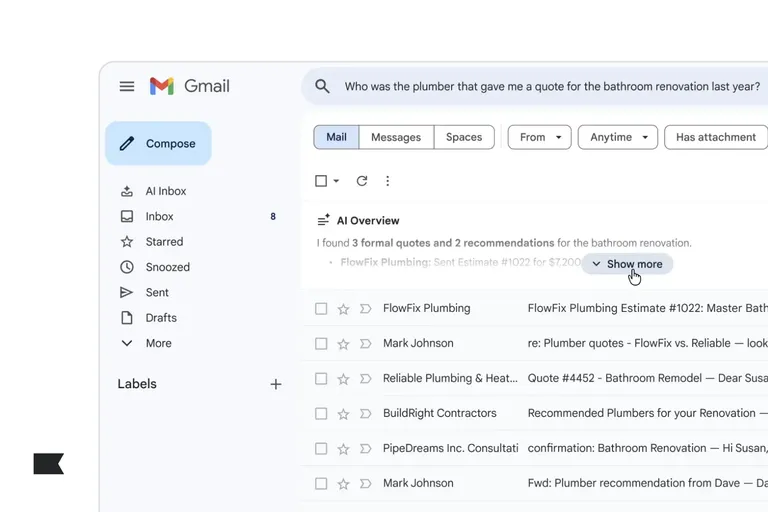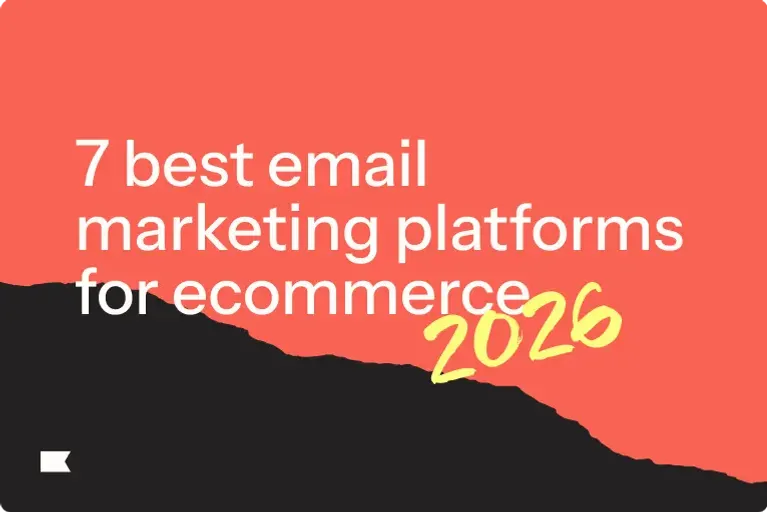Noah Kagan, CEO of AppSumo and author of Million Dollar Weekend, generates 50% of his revenue from email.
“Email is the only way to control your destiny,” he says. “Mother YouTube [the algorithm] could decide not to show my video, whereas with email I’m in control.”
“And in business,” Kagan says, “you need to increase the amount of things in your control.”
Email is the only way to control your destiny. And in business, you need to increase the amount of things in your control.
With an active email audience of 250K people, Kagan is a master of engaging audiences with owned channels. Given the success he’s seen with AppSumo and his own personal newsletter, we couldn’t resist a conversation with him about his secrets to email success.
Keep reading for the highlights, or check out the entire conversation if you don’t want to miss anything.
1. Connect with your active audience weekly
Kagan admits that 2 years ago, AppSumo was sending too many emails to their audience.
“When we started the business, we were sending 2-3 emails per day,” he says. “We had to scale it back when we noticed some of our core metrics––unsubcribe, click, and open rate, even though revenue was good––were suffering. That was a sensitive thing for us.”
As the GroupOn for software, AppSumo is a business built on urgency—their customers need to act fast to take advantage of deals. This is why scaling back to one email per day was a nerve-wracking experiment.
But Kagan says they were able to do it, and to this day he recommends sending a regular broadcast to your active audience—people who have engaged within the last 180 days—at least weekly to stay top of mind.
2. Use email flows to automate targeted urgency
Kagan uses Klaviyo’s automated flows to trigger emails when a product is about to be discontinued. “These emails crush when a product is about to go away within 24-48 hours,” he says—“especially because we email people who specifically viewed those product pages.”
To strengthen the sense of urgency, AppSumo adds a countdown timer to their FOMO emails. The visual reminder works well for flash sales, special promotions, or event-specific emails.
If you want to take urgency to another level, Kagan recommends creating your own FOMO day (similar to what Amazon did with Prime Day). AppSumo created Sumo Day in June to replicate their Black Friday Cyber Monday success.
Ask yourself how you’re creating a monthly experience so people look forward to what you’re sending.
“The one caveat I will say, though,” he says, “is that you need to test new concepts like this against the core principles of your business.”
AppSumo has “last call” campaigns every month, Kagan explains. “But these are things we tested for ourselves. If you don’t know where to start with something like this, ask yourself how you’re creating a monthly experience so people look forward to what you’re sending.”
3. Sort your A/B tests by impact hypothesis
Kagan’s email team draws from a spreadsheet of 100+ possible A/B tests, ranked by impact hypothesis.
“We ask ourselves, if we did this test, how much would it impact revenue?” he says. “You’re more likely to see a higher return on investment with your tests if you prioritize them, since there are so many possibilities.”
But exactly which tests does Kagan prioritize? Here’s what he shared:
- Send time: “We normally send our drop emails for new products at 4 p.m.,” Kagan says. “We tested sending it at 9 a.m. instead, and that simple change made a huge impact.”
- Countdown timer placement: “Our whole business is built around urgency, so we have timers on almost everything with limited quantities,” Kagan explains. “We tested moving the timer from the bottom of the email to the top, and guess what? It didn’t make an impact.”
- Promotion frequency: “We used to do two promotions a week, and then we tested doing only one,” Kagan says. “Surprise—one per week worked better than two for us.”
4. Create surveys that lead to high-intent segments
Outside of AppSumo, Kagan has seen a lot of success with including surveys in his emails.
As an example, Kagan shares that when he was promoting his book, Million Dollar Weekend, he asked his subscribers where he should go on his book tour. After he collected enough answers (300, to be exact), he created a segment of people who responded and asked them to buy his book.
The result was an 80% conversion rate.
Raise problems with surveys and create a segment of respondents. Follow up with product announcements that solve for the question you asked
“With your own audience,” Kagan says, “raise problems with surveys and create a segment of respondents—those people showed high intent. Follow up with product announcements that solve for the question you asked.”
5. Build a weekly revenue-focused email KPI report
AppSumo tracks sign-ups, open rates, click rates, and conversion rates, but they’re much more granular with revenue tracking for their email campaigns and flows.
“We have monthly gross sales targets for our emails,” Kagan says, “and we check if we’re on track to hit our targets once per week.”
On top of sales targets, Kagan’s team also tracks:
- Percent of total revenue from email: Kagan recommends 30-50% of revenue from email so that brands are less dependent on paid ads
- Revenue per delivery: how much each delivered email is worth
- Revenue per session: how much each website session from email is worth
- Email launch traffic: the amount of traffic generated when AppSumo launches a new product
- Sessions per delivery: the number of website sessions relative to the number of emails sent
Kagan had a lot more to say about KPIs and email strategy. Watch the entire event, Techniques to master the art & science of customer engagement, for more examples, benchmarks, and recommendations for SMBs.
Power smarter digital relationships with Klaviyo SMS.




